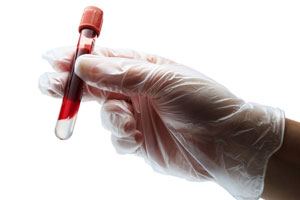The attorneys for Kelli C. Smith, who has been accused of being drunk when she caused a fatal car crash in 2012, are attempting to bar the state from presenting blood evidence that she was intoxicated. The defense also contends that the state is attempting to call an expert witness that the defense consulted before the first trial.
The Incident
At 3:30 a.m. on February 25, 2012, Kelli Smith was driving a Nissan SUV eastbound in the westbound lanes of Interstate 70, when she hit a car head-on. The collision killed 35-year-old Thomas D. Sullivan, Jr., the driver of the other car. Sullivan’s car caught fire after the crash, burning his body beyond recognition. Smith had to be extricated from her car and was airlifted to University Hospital in Columbia, Missouri with serious injuries.
First Trial
In May 2012, Smith was charged with first-degree involuntary manslaughter. The state argued the Smith knowingly got behind the wheel while intoxicated. She had been visiting bars in downtown Columbia that night and drove a couple people home before leaving the city. Smith’s defense counsel presented evidence that Smith was not drunk, but instead was under the influence of a date-rape drug that was used to sexually assault her. Smith’s attorneys brought in expert witnesses who criticized the Missouri State Highway Patrol’s investigation of the accident, the extraction and handling of her blood sample, and their failure to investigate the sexual assault.
During her four-day trial, Smith’s friends and family testified on her behalf while Sullivan’s family gave victim impact statements.
Smith’s father, Jim Smith, stated, “I know Kelli feels just horrible about the loss of Thomas Sullivan…She stated many times since the accident that she wished it was her, not him.”
Thomas D. Sullivan, Sr. said that the loss of his son is constant. He showed the jury photos of his grandsons, who were 4 and 7 at the time of his son’s death. He said, “They’ll never get to know their dad…He was a great father and a loving provider. Patient beyond the patience I had.”
The jury convicted Smith of first-degree involuntary manslaughter and recommended a five-year prison term.
New Trial
Smith appealed her conviction, arguing that the district court judge improperly instructed the jury about blood alcohol evidence, that the court should not have admitted her blood test as evidence, that it improperly limited her references to a date rape drug defense, and that the replacement of a juror during deliberations was inappropriate. The Missouri Court of Appeals granted Smith a new trial on the basis that the jury may have been prejudiced by the instruction on blood alcohol evidence.
In her second trial, Smith’s attorneys are again arguing that the state should not be allowed to present blood evidence that Smith was intoxicated. They assert that the evidence is unreliable because it had been taken more than 8 hours after the accident and had not been refrigerated for more than a week.
The state made a motion to bar witness opinions about whether Smith was raped before the crash. The district court judge ruled against the motion. The court will have another hearing to rule on whether defense can keep the blood evidence out and whether the state can use as an expert witness a doctor that a defense attorney consulted before the first trial.




